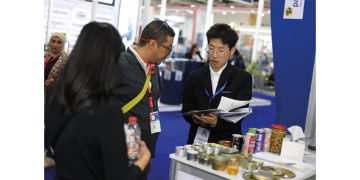Due to its rich plant variety, Turkey is one of the countries best suited for organic cultivation. Today, nearly 250 kinds of agricultural products are organically produced efficiently.
Nowadays consumers are becoming increasingly interested in environmentally sound products, as a result of continuously expanding awareness. Thus, the desire for healthy life has oriented consumers toward healthy food and organic agricultural products. The movement towards healthy food has started in 1960’s in developed countries, spread all over the world. In line with, growing demand, organic agricultural activities began in Turkey in 1985 based on demand of importing countries. Due to its rich plant variety, Turkey is one of the countries best suited for organic cultivation. Today, nearly 250 kinds of agricultural products are organically produced in Turkey and shipped abroad pioneering with dried fruits and nuts, olive and olive oil, pulses and spices. Industrial products such as cotton, textiles and essential oils have also be started to be produced organically. In the Turkish agricultural and food industry, production is realized in conformity with all rules of hygiene in order to produce highquality and sanitary products. In this regard, many firms in Turkey have started to apply internationally recognized quality and food safety systems like ISO 9000, ISO 22000, HACCP, BRC, IFS, SQF or GLOBALGAP.

This enables the Turkish food industry to export to all countries in the world. In addition, the similarity of consumers’ preferences with Moslem countries and the geographic and cultural proximity to many European markets allow Turkish food exporters to penetrate international markets easily. However, the Turkish agriculture and food industry export potential is not limited with these products. There are many other products that are worth experiencing and these are recommended to all consumers in the world. From all of the described products above, it can be easily seen that Turkey has become a big potential supplier of various agricultural and food products. It is apparent that Turkey is likely to continue to develop her trade with world markets as her products become known and preferred more and more in the future. In the meantime, trade between Turkey and the world markets must not be solely limited to export and import business; foreign investment is always welcome to Turkey. Joint ventures in Turkey and other countries are potential activities, which are expected to be the major promoting tool for enhancing trade relations of Turkey.















